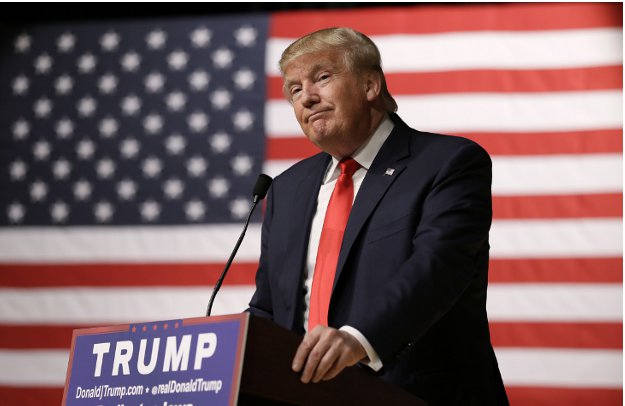A Great Mourning: Thoughts on Donald Trump’s Victory

Opinion:
In the early hours of Wednesday morning, following the Presidential election, I felt something deep inside, something I couldn’t at first identify, sliding downward. It wasn’t the slow descent into the shadows of darkness that precedes sleep, it was something darker still. As I shut off the TV, as I tried to rise, the weight of it pulled me back. The air itself was full of it, sucking all the oxygen out of the room.
All the imagery I tried to summon—a black hearse, an American flag draped like a shroud over a figure of state, the grieving widow in a dark veil—it was all there. But it was all too personal, too reminiscent of the days of JFK, of any leader struck down too soon.
This was a different kind of death. The death of a country.
I saw myself in a grade school assembly, facing the flag, hand over heart, singing a little off-key: My country ‘Tis of Thee, sweet land of liberty…
I saw myself again, marching down Wilshire Boulevard in Los Angeles during the early years of the Vietnam War, protesting that same war but holding a miniature flag high in my hand. I was an American citizen, after all.
Later still, standing amidst the crowd gathered on New York’s Sixth Avenue, I watched on a giant projection screen as Neil Armstrong stepped upon the chalky surface of the moon and placed the Stars and Stripes firmly in place. We Americans were not just worldly, we were Other-Worldly.
Soon, I was on another march, flag aloft, headed down New York City’s Fifth Avenue with thousands of other women of every age and race. We were celebrating Women’s Liberation. We were, whether we knew it or not, celebrating equality for all.
Now I’ve come down to earth, along with millions to others, with a resounding thud.
How do you mourn a country?

How do you grieve for something you’ve always known was there and is no longer. For make no mistake. In its place is something rank, rotten, and speaking with a seemingly forked, barely recognizable tongue. It spews venom—the venom of divisiveness, homophobia, misogyny, racism, and xenophobia. And, yes, ignorance. It’s a voice that has forgotten or never learned the plain-spoken eloquence of what it means to be America the Beautiful, the land that we loved.
Later that morning after, I found myself on 41st Street, on a street named Library Way, just east of the main branch of the New York Public Library. The block is emblazoned with brass plaques in the sidewalk, famous literary quotes. And, as fate would have it, I paused, purposeless, looking down:
I want everybody to be smart. As smart as they can be. A
world full of ignorant people is too dangerous to live in.
It was a quote by playwright Garson Kanin, from Born Yesterday. He was a smart man.
So, after the mourning, what do we do? Get smart? Find another country? For most of us, we’re still a bit sentimental about the old one. I’m just not sure how we can get it back. Maybe we could start by listening, really listening, to each other. And even fighting, if that’s what it takes. Massachusetts Senator Elizabeth Warren’s a fighter. In a speech she gave to the AFL-CIO shortly after the election, she said:
We know what we stand for, the sun will keep rising, and we
will keep fighting—each day, every day…
Maybe four years isn’t such a long time to mourn. Maybe the Great Revival’s just around the corner.
Author Bio:
Sandra Bertrand is Highbrow Magazine’s chief art critic.
For Highbrow Magazine





























































































































































































































































































































